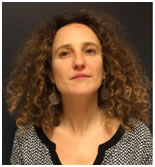 |
||
Home > TERATEC FORUM > Workshop 2
Workshop 2 - Wednesday, June 28 from 9h00 to 12h30
Health - Perspectives for Personalized Medicine in 2025
Computational challenges and modelistion in epidemiology of infectious diseases
Summary : The acquisition and transmission of a pathogen in populations is a complex phenomenon resulting from a combination of processes operating at different scales (between-human transmission, colonisation at the host and microorganism levels). Mathematical and computational epidemiology are powerful tools to better understand the spread of infectious diseases. The increased computational power and use of Information and Communication Technologies, along with the advent of the Big Data era, now allow sophisticated modelling approaches to be developed jointly with epidemiological investigations integrating recent microbiological technologies. On one hand, mathematical models make possible to carry out in silico experiments that would be difficult or impossible, for practical, economic or ethical reasons, to carry out in reality. On the other hand, they can be used to analyse complex biological data and estimate unknown key parameters, and therefore increasing our knowledge. However, most of the epidemiological models focus on the question of transmission at the population level. Recently, such population models made possible nearly real time analysis of the recent Ebola and Zika outbreaks and were very useful to support public health response to control these epidemics. Similar real time application, for personalized medicine of patients or for the control of outbreaks in small populations such as hospital wards, could be considered in the future. However, it will require considerable increase of our computational capacity. At these smaller scales, phenomena are strongly multi-factorial and stochastic requiring more complex models and intensive simulations studies. In this talk, I will detail several challenges for the coming years, based on some practical example.
 |
Biography : Lulla Opatowski is assistant professor in Mathematical Epidemiology at the University of Versailles Saint Quentin (UVSQ) working in the “Biostatistics, Biomathematics, Pharmacoepidemiology and Infectious Diseases” (B2PHI) unit, UMR1181 (Versailles Saint Quentin university, Inserm, Institut Pasteur) research group which includes physicians, epidemiologists, biologists, biomathematicians and biostatisticians. Her main research interests are in mathematical and computational modelling of infectious disease and statistical inference, with a particular interest in bacterial resistance to antimicrobials (including antibiotics and vaccines) and host-pathogen-pathogen interactions. Some of her projects include the modelling of interactions between respiratory bacteria and influenza viruses in humans, the modelling of transmission of nosocomial pathogens in hospitals using detailed proximity contact data, the modelling of gut microbiota and the impact of its dynamics on the acquisition of antibiotic resistant bacteria. |
![]()
Register now and get your badge here
- TERATEC Forum is strictly reserved for professionals.
- Participation to exhibition, conferences and workshops is free (subject to seats available)
- On line registration is obligatory to attend exhibition, conferences or the workshops.
- The Vigipirate security plan being raised to its highest level, it is mandatory to register online in advance and come with an identity card order to participate in TERATEC Forum.
- The badge is free of charge and give you access to all events TERATEC Forum.
Find the technical workshops of the TERATEC Forum on the theme of HPC in health and download the presentations
![]() Teratec 2016 Forum : HPC technologies and applications in the healthcare sector
Teratec 2016 Forum : HPC technologies and applications in the healthcare sector
- Towards Digital Medicine in France by Francois SIGAUX, Directeur Scientifique Executif, CEA
- Precision Medicine, Big Data and Smart Cities by Suzanne HOLT BALLARD, Professor, OHIO UNIVERSITY
- Big Data in the french public health system by Emmanuel BACRY, Directeur de recherche au CNRS, Responsable de l’Initiative « Data Science » - Centre de Mathématiques Appliquées, Ecole Polytchnique
- Big Data for modern life sciences : challenges and solutions for Data Access (performances, flexibilty, security and privacy) by James COOMER, Technical Director, DDN - Peter CLAPHAM, SANGER
- Where are the bottlenecks of genome analysis today? by Ivo Glynne GUT, Centro Nacional de Analisis Genomico, CRG, Barcelona
- Les simulations HPC pour le décryptage des interactions moléculaires et l’obtention de nouvelles cibles thérapeutiques by Manuel DAUCHEZ, Professeur de Biophysique et Biochimie Computationnelle, UNIVERSITE DE REIMS CHAMPAGNE-ARDENNE
- Predictive and patient-specific numerical simulations of endovascular surgery for aortic abdominal aneurysms by ichel ROCHETTE, Director of Research, ANSYS
- Application of Optimization & CFD in Surgical Planning for Percutaneous Coronary Intervention by Silvia POLES, Senior Application Engineer, NOESIS Solutions
- Simulations for Abdominal Wall Reconstruction by Frédéric TURQUIER, PhD, Director Research & Development, COVIDIEN Surgical Solutions
- Interpretation of Clinical Exome : Le Big Data comme brique d’assistance aux choix thérapeutiques en oncologie by Philippe RAVIX Directeur Innovation SOGETI HIGH TECH
- Le calcul haute performance pour l'analyse de données de neuroimagerie-génétique en grandes dimensions by Benoit DA MOTA, Expert hpc&bioinformatics, ALLIANCE SERVICES PLUS - Edouard DUCHESNAY, research Engineer, NEUROSPIN
![]() Teratec 2013 Forum : HPC in Biology and Health
Teratec 2013 Forum : HPC in Biology and Health
- High performance computing and simulation in medicine: scope and challenges by François BALLET, MEDICEN
- The discovery of innovative therapeutic approaches: under the street light is not necessarily the right place to search by Dr. François IRIS, Chairman & CSO, BIO-MODELING SYSTEMS
- Can HPC help cure Pharma R&D? by Philippe GUILLET, Chief Geriatrician, SANOFI
- Le cerveau de cristal - Ce que nous révèle la neuroimagerie by Denis LE BIHAN, CEA
- Simulation & High performance computing: The challenge of computer-assisted surgery by Luc SOLER, R&D Director of IRCAD, R&D Director of IHU Strasbourg
For any other information regarding the workshops, please contact :
Jean-Pascal JEGU
Tel : +33 (0)9 70 65 02 10
jean-pascal.jegu@teratec.fr
Campus TERATEC
2, rue de la Piquetterie
91680 BRUYERES-LE-CHATEL
France